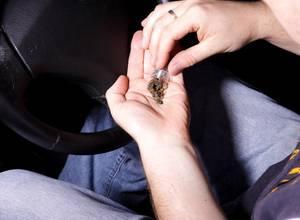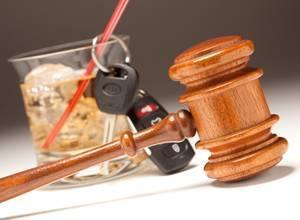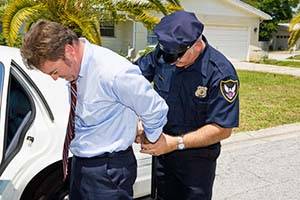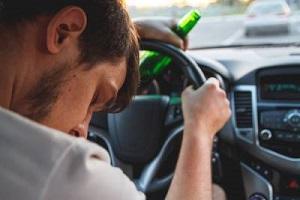Recent Blog Posts
Consequences of an Underage DUI in Texas
 The public considers the terms “driving while intoxicated” and “driving under the influence” to be synonymous. DWI and DUI are both charges of drunken driving, and each state has a preferred term. However, Texas uses both terms to classify different types of drinking and driving criminal charges. Anyone who has a blood alcohol concentration of 0.08 or greater while operating a motor vehicle will receive the more familiar charge of DWI. DUI applies to cases involving people who are younger than 21.
The public considers the terms “driving while intoxicated” and “driving under the influence” to be synonymous. DWI and DUI are both charges of drunken driving, and each state has a preferred term. However, Texas uses both terms to classify different types of drinking and driving criminal charges. Anyone who has a blood alcohol concentration of 0.08 or greater while operating a motor vehicle will receive the more familiar charge of DWI. DUI applies to cases involving people who are younger than 21.
Underage Drinking and Driving
Texas has a zero-tolerance policy towards drivers who are younger than 21 and have been drinking. Any traceable of amount of alcohol in their systems can result in DUI charges, regardless of whether they were impaired. An underage drinker can still be charged with DWI if his or her BAC is 0.08 or greater. Whether the charge is a DUI or DWI, the underage drinker may also face related charges, such as:
Marijuana Testing Misleading After DWI Stops
 The charge of driving while intoxicated in Texas includes drivers who are impaired by the use of marijuana. A person convicted of driving while high will face:
The charge of driving while intoxicated in Texas includes drivers who are impaired by the use of marijuana. A person convicted of driving while high will face:
- Three to 180 days in prison and a fine of as much as $2,000 for the first offense;
- 30 days to one year in prison and a fine of as much as $4,000 for the second offense; and
- Two to 10 years in prison and a fine of as much as $10,000 for the third offense.
Texas law enforcement is identifying an increasing number of drivers who test positive for marijuana. However, the protocols for determining a DWI on marijuana are less refined than for a DWI on alcohol. This can lead to erroneous charges, which a skilled lawyer can contest.
Unreliable Testing
Officers have several forms of testing they can administer to determine a driver's blood alcohol concentration, including a breath test. If the suspect’s BAC is 0.08 or higher, he or she is considered legally intoxicated and in violation of the law. The judicial system widely accepts the accuracy of such tests. For marijuana use, THC levels in a person’s system is considered the equivalent to the BAC. However, there are several problems with marijuana testing:
Social Media Is Evidence in DWI Cases
 The proliferation of social media outlets such as Facebook and Twitter has created a culture of oversharing personal information. Incredulously, this includes people posting incriminating information about themselves that either leads to their arrest or is used as evidence in a trial. In cases of driving while intoxicated, some suspects share details about traffic incidents and their drinking habits before they have been arrested. A court may view these posts as admissions of guilt. If you are involved in a suspected DWI incident, you must be silent on social media in order to protect yourself.
The proliferation of social media outlets such as Facebook and Twitter has created a culture of oversharing personal information. Incredulously, this includes people posting incriminating information about themselves that either leads to their arrest or is used as evidence in a trial. In cases of driving while intoxicated, some suspects share details about traffic incidents and their drinking habits before they have been arrested. A court may view these posts as admissions of guilt. If you are involved in a suspected DWI incident, you must be silent on social media in order to protect yourself.
Public Forum
If you are pulled over by a police officer, you should know not to brag about how much you’ve had to drink or how your intoxication may have affected your driving ability. People are essentially doing just that when they post information about their DWI incident to social media. Many users forget how social media actually works:
Child Passenger Makes DWI Offense a Felony
 There are several aggravating factors in driving while intoxicated cases that can lead to harsher penalties if convicted. Child endangerment is one of the most serious factors because it involves your responsibility to protect the children in your vehicle. A DWI charge that is normally a misdemeanor becomes a felony when children are involved. Beyond criminal ramifications, your fitness as a parent will come into question. DWI with a child passenger is a serious offense that can disrupt your family if not successfully contested.
There are several aggravating factors in driving while intoxicated cases that can lead to harsher penalties if convicted. Child endangerment is one of the most serious factors because it involves your responsibility to protect the children in your vehicle. A DWI charge that is normally a misdemeanor becomes a felony when children are involved. Beyond criminal ramifications, your fitness as a parent will come into question. DWI with a child passenger is a serious offense that can disrupt your family if not successfully contested.
Arrest Standards
A passenger qualifies as a child in a DWI case if he or she is younger than 15. A child only needs to be present in the vehicle during your suspected DWI incident in order for a DWI with child passenger charge to be filed. If the child was injured during the incident, that may result in a separate charge of intoxication assault with serious bodily injury. When a child is involved in a DWI incident, Texas law states that the officer must take a blood or breath test to determine your blood alcohol content. DWI lawyers advise that you refuse the test because of the incriminating evidence it can provide. However, refusing the test may result in additional charges. An officer can legally compel you to submit to a test only if he or she first produces a warrant. A warrantless test is unconstitutional in most cases, and the result from the test may be dismissed in court.
Texas Court Upholds Citizen's Arrest in DWI Case
 A Texas appellate court denied a woman’s request to overturn her driving while intoxicated conviction, which she claims was influenced by inadmissible evidence. In her appeal, the woman argued that:
A Texas appellate court denied a woman’s request to overturn her driving while intoxicated conviction, which she claims was influenced by inadmissible evidence. In her appeal, the woman argued that:
- A private security guard involved in her case was not authorized to make a citizen’s arrest; and
- Without informing her of her Miranda rights, a police officer at the scene questioned her and obtained an incriminating statement, which he mentioned during his testimony.
The appellate court decided that the citizen’s arrest was legal and the self-incriminating statement was not the deciding evidence in the case.
Case Details
According to testimony, a private security guard for a residential community was on an early morning patrol when he noticed an unfamiliar vehicle stopped in front of a driveway. When he returned to the scene three minutes later, he observed the vehicle moving and driving over a curb before coming to a stop. He approached the vehicle, where he found the driver unresponsive, the car still in drive and her foot on the brake pedal. He put the vehicle in park and removed the keys from the ignition, placing them on the roof. The security guard claims that the woman awoke and was incoherent and disheveled. He called a local police officer to the scene to further investigate the incident. During questioning, the woman admitted that she had drank a bottle of whiskey and a beer a couple of hours earlier. She failed a horizontal gaze test and was taken to central detox, where she also showed signs of intoxication during a walk-and-turn test. The officer then arrested her on suspicion of DWI, including reading her Miranda rights. A test showed her blood alcohol content to be 0.126. She was eventually convicted of a misdemeanor DWI and was sentenced to six days in jail.
Illegal Traffic Stop Can Sink DWI Charge
 Police officers must follow several legal steps when arresting you on suspicion of driving while intoxicated. A mistake at any point in the process can result in the DWI charges being dropped. For instance, a police officer must have a legal reason to stop you leading up to your DWI arrest. If the officer performs an illegal stop, evidence of your alleged DWI may be inadmissible in court, including blood alcohol content and field sobriety tests. Without this key evidence, you can petition to have your DWI charge dismissed.
Police officers must follow several legal steps when arresting you on suspicion of driving while intoxicated. A mistake at any point in the process can result in the DWI charges being dropped. For instance, a police officer must have a legal reason to stop you leading up to your DWI arrest. If the officer performs an illegal stop, evidence of your alleged DWI may be inadmissible in court, including blood alcohol content and field sobriety tests. Without this key evidence, you can petition to have your DWI charge dismissed.
Reasonable Suspicion
Because most DWI arrests do not involve warrants, a police officer must have some cause to pull over a driver. Unfortunately for DWI defendants, Texas allows DWI traffic stops based on the broadly defined standard of reasonable suspicion. Unlike probable cause, reasonable suspicion only requires that an officer have some reason to believe that the driver committed a traffic violation or was driving dangerously. The officer can be mistaken but still justified in performing the stop if it was based on a reasonable belief. Valid reasons for DWI traffic stops include:
Facing Intoxication Manslaughter in Texas
 Prosecutors charge a defendant with manslaughter when the defendant unintentionally kills someone through his or her reckless behavior. Many states have different classifications of manslaughter, including vehicular manslaughter for when a driver acts recklessly. Texas law has a charge of intoxication manslaughter that is separate from vehicular manslaughter. Texas prosecutors bring intoxication manslaughter charges against defendants involved in fatal accidents who are suspected of driving while intoxicated. Defendants who are convicted of intoxication manslaughter may receive severe penalties.
Prosecutors charge a defendant with manslaughter when the defendant unintentionally kills someone through his or her reckless behavior. Many states have different classifications of manslaughter, including vehicular manslaughter for when a driver acts recklessly. Texas law has a charge of intoxication manslaughter that is separate from vehicular manslaughter. Texas prosecutors bring intoxication manslaughter charges against defendants involved in fatal accidents who are suspected of driving while intoxicated. Defendants who are convicted of intoxication manslaughter may receive severe penalties.
Intoxication Manslaughter Charges
The difference between vehicular manslaughter and intoxication manslaughter is the allegation of intoxicating substances being involved the incident. The victim can be someone in another vehicle, a passenger in the defendant’s vehicle or a pedestrian. In order to prove intoxication manslaughter, the prosecution must show that:
How Video Evidence Can Help Your DWI Case
 Police video of your arrest on suspicion of driving while intoxicated has the potential to help or hurt your defense case. A recent and famous example is the video released of Tiger Woods’ arrest. The video portrayed him as being confused as police officers questioned him and administered field sobriety tests. The tape made him look guilty in the court of public opinion. Regardless of its contents, it is vital for your defense to see any video of your DWI arrest. An experienced DWI defense attorney can find useful evidence in an arrest video that a normal person would not think to look for.
Police video of your arrest on suspicion of driving while intoxicated has the potential to help or hurt your defense case. A recent and famous example is the video released of Tiger Woods’ arrest. The video portrayed him as being confused as police officers questioned him and administered field sobriety tests. The tape made him look guilty in the court of public opinion. Regardless of its contents, it is vital for your defense to see any video of your DWI arrest. An experienced DWI defense attorney can find useful evidence in an arrest video that a normal person would not think to look for.
Accessing Video Evidence
Police departments commonly install dashboard cameras in their vehicles to record arrests. The prosecution can use the video footage to support the charges brought against you in a DWI case. Your defense also has a right of discovery that allows it access to evidence the prosecution has against you. Upon your request, the prosecution must provide you with a copy of the arrest video. Failure to comply may result in your case being dismissed. However, the prosecution is only required to turn over the video evidence if your defense makes a formal request.
Beware Boating While Intoxicated Charges
 The summer can be the height of recreational boating season in Texas, particularly during holidays such as the Fourth of July. Police are aware of this and will be on the lookout for people who have had too much to drink. Boating While Intoxicated is just as serious a charge in Texas as Driving While Intoxicated. People accused of BWI must take the same measures to protect themselves as if they were stopped for a DWI.
The summer can be the height of recreational boating season in Texas, particularly during holidays such as the Fourth of July. Police are aware of this and will be on the lookout for people who have had too much to drink. Boating While Intoxicated is just as serious a charge in Texas as Driving While Intoxicated. People accused of BWI must take the same measures to protect themselves as if they were stopped for a DWI.
Defining Boating While Intoxicated
BWI occurs when a person operating any motorized aquatic vehicle is legally intoxicated, which is defined as having a blood-alcohol content of 0.08 or greater. Just as with a DWI, the punishment for those convicted varies, depending on the offender’s history and aggravating factors:
- A first-time BWI offense with no aggravating factors is a class B misdemeanor, with a sentence as long as 180 days in jail and a fine as large as $2,000;
Texas Close to Passing Second Chance Law for DWI Offenders
 A conviction of driving while intoxicated in Texas has consequences beyond the court-issued punishment. The conviction will show up on your criminal record when someone conducts a background check on you. A DWI record could prevent you from getting a new job, bank loan or lease on an apartment. Proposed Texas legislation would allow one-time offenders to seal their DWI records. The “Second Chance Bill” has passed the Texas House of Representatives and Senate and is awaiting Gov. Greg Abbott’s approval. The bill has received bipartisan support, based on the idea that an isolated DWI incident should not punish a person for the rest of his or her life.
A conviction of driving while intoxicated in Texas has consequences beyond the court-issued punishment. The conviction will show up on your criminal record when someone conducts a background check on you. A DWI record could prevent you from getting a new job, bank loan or lease on an apartment. Proposed Texas legislation would allow one-time offenders to seal their DWI records. The “Second Chance Bill” has passed the Texas House of Representatives and Senate and is awaiting Gov. Greg Abbott’s approval. The bill has received bipartisan support, based on the idea that an isolated DWI incident should not punish a person for the rest of his or her life.
How It Works
The bill would amend the Texas code regarding the nondisclosure of non-violent class C misdemeanors and DWI convictions with a blood alcohol content level of less than 0.15. Texas passed a similar bill in 2015 that applied to non-violent class A and B misdemeanors. A person could petition a court to seal the record of his or her DWI conviction in Texas, as long as:





